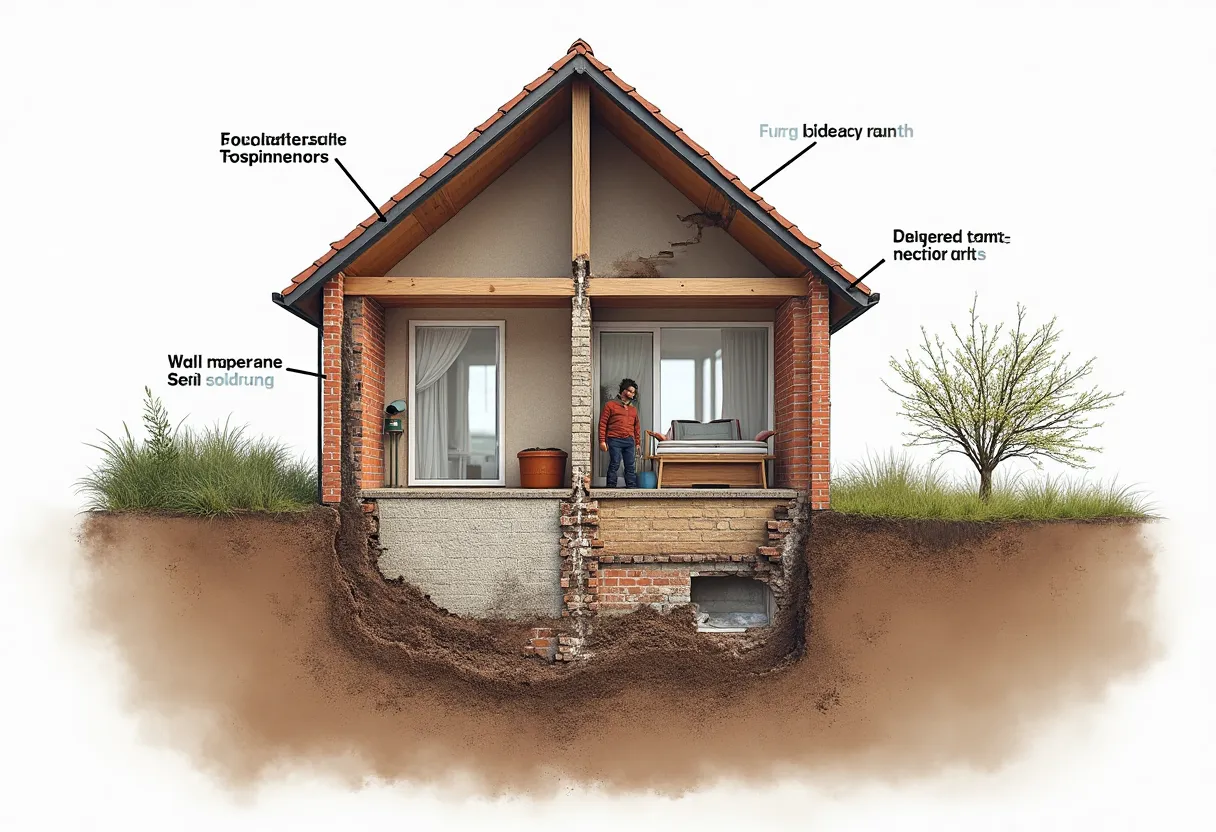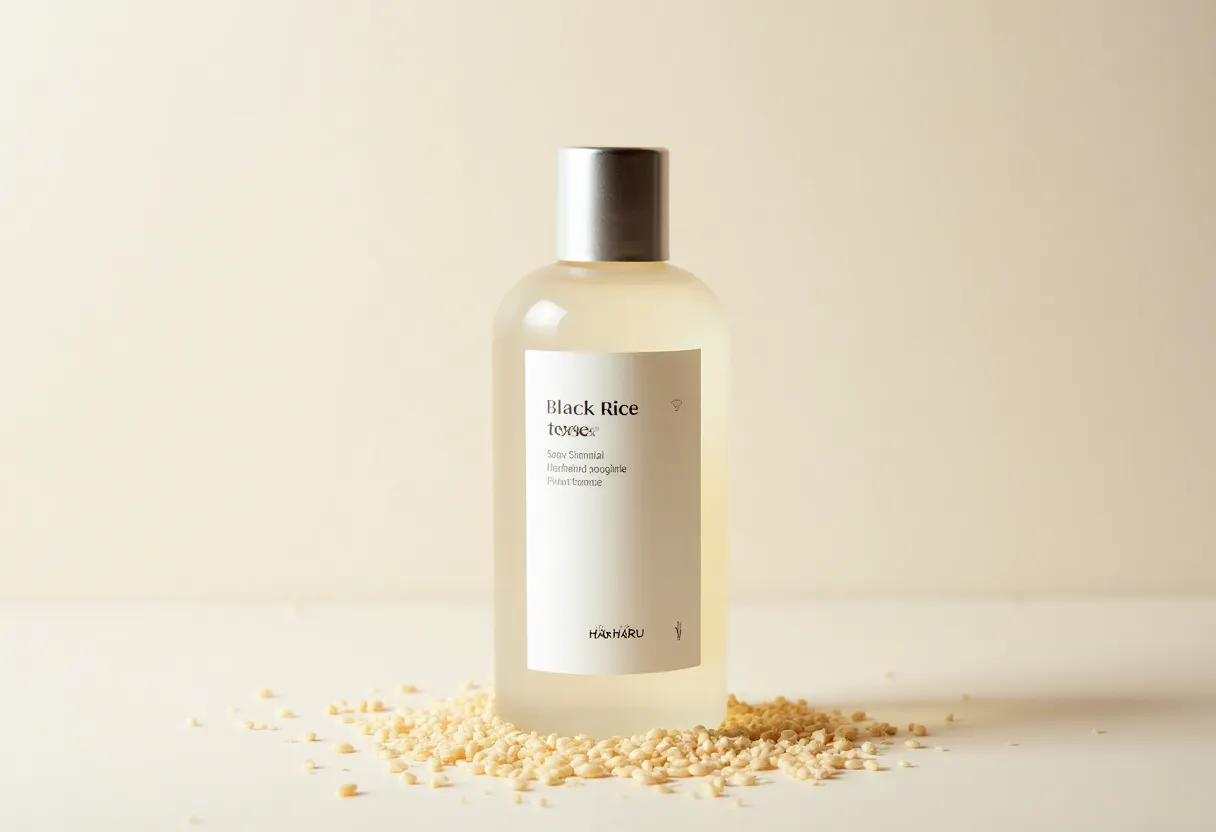25 Essential Blogging Tips for Beginners: How to Start and Grow a Successful Blog

Your ultimate guide to choosing a niche, engaging your audience, mastering content planning, SEO, and writing techniques.
Okay, let me be completely honest here—when I first thought about starting a blog three years ago, I spent about two months just staring at blank WordPress templates. I had this weird analysis paralysis where I'd read one article that said "just pick ANY topic and start writing!" and another that insisted I needed to do 47 hours of market research first.
Turns out, the truth is somewhere messier than either extreme, and frankly, some of the advice I'm about to give you contradicts what I believed when I started. But that's the thing about blogging—it's this weird mix of strategy and just… stumbling forward until something clicks.
So here's what I wish someone had told me (and what I've learned the hard way since then).
Table of content:
- Choose Your Perfect Niche: The Foundation of Your Blog (But Don't Overthink It)
- Platform Selection: This Matters More Than I Initially Thought
- Content Planning: The Difference Between Sustainable Blogging and Burnout
- SEO: Less Scary Than It Sounds, More Important Than I Wanted It to Be
- Writing That Doesn't Suck: Techniques for Actual Humans
- Building an Audience: Engagement That Doesn't Feel Forced
- Monetization: When and How to Start Making Money
- Advanced Strategies (Or: Things I Wish I'd Known Sooner)
- Real Blogger Success Stories (With Actual Numbers)
- Answers to Questions I Get All the Time
- What I'd Do Differently If I Started Over Tomorrow
- The Reality Check You Probably Need
1. Choose Your Perfect Niche: The Foundation of Your Blog (But Don't Overthink It)
I used to think you had to have this laser-focused niche from day one. Like, "I write about sustainable fashion for working mothers in urban areas who shop at Target." That specific. And maybe that works for some people, but honestly? Most successful bloggers I know started broader and narrowed down as they figured out what they actually enjoyed writing about.
Why Niche Selection Matters (But Also Why It Doesn't)
- Yeah, specialized blogs do attract more dedicated readers
- SEO is definitely easier when Google can figure out what you're about
- Monetization becomes less scattered—I learned this one the hard way
- But also… you might discover you hate your niche six months in, and that's okay too
I started writing about "productivity tips for creative people" which sounds specific but was actually code for "I have ADHD and need to write down all my random organization ideas somewhere." Three months in, I realized I was way more passionate about the creative part than the productivity part. Did some pivoting. The world didn't end.
How to Choose a Niche Without Going Insane
First, forget everything about "finding gaps in the market" for now. That's advanced stuff. Start here:
- Make a list of things you actually talk about when you're excited. Not things you think you should care about—things that make you animated at dinner parties.
- Check if other people are writing about these topics. If literally no one is, that might be a red flag. If everyone is… well, that just means there's an audience.
- Pick something you could see yourself writing 50 posts about without getting bored. (Trust me on this number—it's about where blogger's block typically hits.)
Side note: I spent way too much time with Google Trends initially. It's useful, but don't let it become another procrastination tool. Sometimes the best niches are the ones that don't trend but have steady, passionate audiences.
Actually actionable steps:
- Set a timer for 10 minutes and brain-dump topics you could write about
- Cross out anything that makes you feel "meh" when you read it
- Pick the one that makes you think "oh, I could tell you about…"
- Start there. You can always adjust.
2. Platform Selection: This Matters More Than I Initially Thought
Okay, this is where I completely changed my tune. I used to be all "just start writing, the platform doesn't matter!" But after helping my friend migrate her two-year-old blog from Wix to WordPress because she wanted to do affiliate marketing… yeah, platform choice matters.
The Real Talk on Popular Platforms:
WordPress.org (self-hosted): This is what I use now, but I'm not gonna pretend it wasn't intimidating at first. Yes, you have complete control. Yes, the SEO capabilities are excellent. But also yes, you will spend at least one Saturday troubleshooting something that broke for no apparent reason. Budget for that mentally.
Squarespace: Honestly, if I was starting over and just wanted to write without thinking about technical stuff, I'd probably go here. The templates are gorgeous, and I've never seen a Squarespace blog that looked bad. The SEO tools have gotten way better too.
Medium: Great if you just want to focus on writing and don't care about "building your brand" or whatever. You can reach people immediately. But you're basically renting space, not owning it, which matters more as you grow.
Wix: I feel like Wix gets a bad rap because of its weird ads, but the new editor is actually pretty solid for beginners. Just know that if you get serious about blogging, you'll probably want to move eventually.
Don't ask me about Blogger. Please. It's 2024.
What Actually Matters When Choosing:
- How comfortable are you with technology? Be honest.
- Do you want to potentially make money from this blog someday?
- How much do you care about having a completely custom look?
- Are you willing to learn some basic technical skills, or do you just want to write?
Steps that aren't completely overwhelming:
- Decide if you're in "just want to write" or "this could become something bigger" mode
- If option 1: Medium or Squarespace
- If option 2: WordPress.org (and yes, pay for hosting—it's like $5/month)
- Stop second-guessing yourself after you choose
3. Content Planning: The Difference Between Sustainable Blogging and Burnout
I burned out spectacularly in month four of my first blog because I was just writing whatever I felt like whenever I felt like it. Some weeks I'd publish four posts, other weeks nothing. My three subscribers (hi mom!) never knew what to expect.
Content planning saved me, but not in the way those perfectly organized editorial calendar posts suggest.
The Planning Approach That Actually Works:
Forget about those color-coded calendars with themes for each day of the week. Start smaller:
- Pick a posting frequency you can maintain when you're having a bad week. If you think you can post daily, plan for weekly. Trust me.
- Keep a running list of post ideas in your phone. I use Apple Notes because it syncs everywhere and I'm lazy.
- Batch similar tasks. Write outlines for three posts in one session, then write all the first drafts another time.
- Always have two posts completely done before you publish anything. This buffer will save your sanity.
I learned the hard way that "consistent" doesn't mean "frequent." Better to post every two weeks reliably than sporadically every few days.
Content Mix That Keeps Things Interesting:
I used to think all my posts needed to be comprehensive guides. Exhausting. Now I mix it up:
- Tutorial posts (these take forever but perform well)
- Opinion pieces (quick to write, fun to debate in comments)
- Personal stories (surprisingly popular, way easier than research-heavy content)
- List posts (yeah, they're clickbait-y, but people genuinely find them useful)
- Updates/behind-the-scenes (builds connection with readers)
The sweet spot seems to be about 60% educational, 30% personal, 10% purely entertaining. But don't quote me on those percentages—I literally just made them up based on what feels right for my blog.
Actually manageable steps:
- Pick a realistic posting schedule (start with every other week if you're unsure)
- Brain-dump 15 post ideas right now
- Write 2 complete posts before you launch
- Set up a simple system to capture ideas (phone notes, whatever works)
4. SEO: Less Scary Than It Sounds, More Important Than I Wanted It to Be
I really, really wanted to be the blogger who just wrote amazing content and people magically found it. That's… not how the internet works. Sorry.
But here's what I wish someone had told me: you don't need to become an SEO expert overnight. You just need to do a few things consistently.
SEO Basics That Actually Move the Needle:
Keyword research sounds fancy but is basically:
- Think about what someone would type into Google to find your post
- Use that phrase naturally in your title and a few times in your content
- Don't stuff it in awkwardly—if it sounds weird when you read it out loud, fix it
I use Ubersuggest now, but honestly, Google's autocomplete suggestions will get you 80% of the way there when you're starting out.
On-page SEO checklist I actually follow:
- Title includes main keyword and is under 60 characters
- First paragraph mentions the keyword naturally
- Use headers (H2, H3) to break up content—also good for readability
- Write a meta description (that little preview text in search results)
- Add alt text to images describing what's actually in them
Internal linking is linking to your other posts within your content. I ignored this for months because it felt like homework, but it actually helps readers find more of your stuff AND helps search engines understand your site. Win-win.
Fun fact: I just learned that the average top-ranking page is around 1,447 words. Not because long content is automatically better, but because you need space to thoroughly cover topics. Quality over quantity, but also… quantity helps sometimes.
Steps that don't require a marketing degree:
- Install Yoast or RankMath plugin (they guide you through optimization)
- Before writing, think: "What would someone Google to find this?"
- Use that phrase in your title and naturally throughout
- Link to 2-3 of your other relevant posts in each new post
- Check your site speed with Google PageSpeed Insights—slow sites are penalized
5. Writing That Doesn't Suck: Techniques for Actual Humans
I have a confession: I used to write blog posts the same way I wrote college papers. Dense paragraphs, overly formal language, conclusions that restated everything I'd just said. My early posts read like instruction manuals written by robots.
Turns out, people want to feel like they're having a conversation, not reading academic research.
What Works for Blog Writing:
Short paragraphs are your friend. Like this one.
Seriously, look at any successful blog. Paragraphs are 1-3 sentences max. It makes content scannable, which is how most people read online. (Are you skimming parts of this post right now? Exactly.)
Bullet points save lives:
- They break up walls of text
- Make information digestible
- Help people find what they need quickly
- Look more professional than you'd expect
Start with a hook, end with something useful. I used to bury my main point three paragraphs deep because that's how I was taught to write essays. But this isn't school—get to the point quickly, then elaborate.
And that call to action at the end? Don't just say "let me know what you think!" Give people something specific to respond to. Ask a question, invite them to try something, suggest a next step.
Voice and tone stuff: Write like you're talking to one specific person, not "your audience." I picture my friend Sarah when I write—someone smart who appreciates both humor and practical advice. She's probably busy, definitely skeptical of fluff, and will call me out if I'm being pretentious.
This approach might not work for every niche (probably don't get super casual if you're writing about legal advice), but for most topics, conversational beats corporate.
My actual writing process:
- Brain-dump everything I want to say in bullet points
- Organize bullets into a rough order
- Turn bullets into paragraphs
- Edit ruthlessly—cut anything that doesn't add value
- Read it out loud to catch awkward phrasing
- Let it sit overnight, then edit again
6. Building an Audience: Engagement That Doesn't Feel Forced
This is where blogger advice gets really cringey really fast. "Build genuine relationships!" "Engage authentically!" Okay, but how do you do that without feeling like a used car salesman?
Here's what actually worked for me:
Responding to Comments Like a Human Being
When someone takes time to comment on your post, they've given you a gift. Respond like you appreciate it. Not with "Thanks for reading!" but with actual engagement.
If they ask a question, answer it thoroughly. If they disagree with something, engage with their point respectfully. If they share their own experience, respond to the specific details they mentioned.
I spend about 15 minutes each morning responding to comments from the previous day. It's become my favorite part of blogging, honestly.
Social Media: Do It, But Don't Make It Weird
I resisted promoting my blog on social media for months because it felt gross. But here's the thing: if you don't tell people your content exists, how will they find it?
The key is being useful, not promotional. Share the actual insights from your posts, not just "New blog post is up!" Give people a reason to click that isn't just supporting you.
Pinterest has been surprisingly effective for my blog, but that might be because my niche (creative business stuff) works well there. Instagram… honestly, I'm still figuring out Instagram. The algorithm confuses me and I refuse to learn TikTok dances to promote blog posts.
Building an Email List (Yes, You Need One)
This advice annoyed me for months because it felt presumptuous. Like, who am I to think people want my emails?
But here's why it matters: social media can disappear, algorithm changes can kill your reach, but your email list is yours. Plus, people who give you their email address are genuinely interested in hearing from you.
Start simple: offer something useful (a checklist, template, mini-guide) in exchange for email addresses. Then actually send useful stuff, not just "here's my latest post" every week.
I send a weekly-ish email with what I'm working on, interesting things I've found, and behind-the-scenes stuff that doesn't make it to the blog. People seem to like the personal touch.
Engagement tactics that don't make you feel slimy:
- Reply to every comment with genuine interest
- Share your posts on 2-3 social platforms with actual insights, not just links
- Set up a simple email opt-in with something genuinely useful
- Email your list when you have something worth sharing, not on a rigid schedule
- Ask specific questions in your posts that invite detailed responses
7. Monetization: When and How to Start Making Money
Let's talk about the awkward stuff. Money.
I avoided this topic for my first year of blogging because it felt… mercenary? Like, I was supposed to be blogging for the pure joy of sharing knowledge, not because I wanted to pay my coffee budget.
Then I realized my blog was taking 10+ hours a week and my coffee budget was suffering. So.
When to Start Thinking About Money
Honest answer: sooner than I thought, but later than some "experts" suggest.
You don't need massive traffic to start monetizing, but you do need some foundation:
- At least 1,000 page views per month (this took me about 4 months)
- An email list with 100+ engaged subscribers
- A clear understanding of who reads your blog and why
Starting too early feels pushy. Starting too late means you've left money on the table. I probably waited too long, but I'm glad I built trust first.
Monetization Methods That Don't Make You Feel Gross
Affiliate marketing: Promote products you actually use and would recommend anyway. I only link to stuff I've personally tried, and I mention that in my posts. Amazon Associates is easy to start with, but commission rates are pretty low.
Digital products: This is where I make most of my income now. Templates, courses, ebooks about topics I'm already writing about. Started with a $7 template, now I have a $200 course. Took about 18 months to build up to that.
Sponsored content: Brands pay you to write about their products. I'm picky about this—only stuff that genuinely fits my audience. Rates vary wildly, but $100-500 per post is typical for smaller blogs.
Display ads: Google AdSense and similar. Easy to set up, but you need decent traffic to make meaningful money. I tried this briefly but decided I hated how ads looked on my site.
The Money Talk Reality Check
Making $100/month from blogging: totally achievable within 6-12 months if you're strategic. Making $1,000/month: possible, but probably takes 12-24 months of consistent effort. Making enough to quit your day job: very possible, but we're talking 2-3 years minimum for most people.
My blog made $23 its first year. It'll probably make around $15,000 this year. That progression felt slow at the time, but looking back, it's actually pretty good.
Steps for monetizing without selling your soul:
- Focus on building audience and trust first
- Start with affiliate links to products you genuinely use
- Create one small digital product related to your most popular content
- Be transparent about monetization with your audience
- Only promote stuff you'd recommend to your best friend
8. Advanced Strategies (Or: Things I Wish I'd Known Sooner)
Okay, "advanced" might be generous. These are more like "things I figured out in year two that would have been helpful in year one."
Repurposing Content Without Going Insane
I used to think every piece of content had to be completely original. Exhausting and unnecessary.
Now I squeeze maximum value from everything:
- Turn comprehensive blog posts into 3-4 social media posts
- Create simple graphics with key quotes for Pinterest/Instagram
- Record myself reading posts as informal podcasts
- Break down long posts into email series
One good blog post can become 10+ pieces of content across platforms. Work smarter, not harder.
Collaborations That Actually Work
Guest posting felt intimidating until I realized it's basically just writing for someone else's audience about topics you already cover.
Start with smaller blogs in your niche. Pitch specific, useful topics (not "I'd love to write something for you!"). Offer to promote the collaboration to your audience too.
Podcast interviews are surprisingly accessible too. Lots of small podcasts are looking for guests, and it's good practice for talking about your expertise out loud.
Analytics That Matter (And Ones That Don't)
Google Analytics is overwhelming and I definitely don't use 90% of its features. But these numbers help me make decisions:
- Page views trend: Growing, declining, or stable?
- Most popular content: What should I write more about?
- Traffic sources: Where are people finding me?
- Bounce rate: Are people sticking around or leaving immediately?
I check these monthly, not daily. Daily analytics checking is a productivity killer.
Real Blogger Success Stories (With Actual Numbers)
I love case studies, but I'm always skeptical when they're too perfect. Here are some real examples from people I know personally:
Sarah's Fitness Blog
Niche: Marathon training for beginners Timeline: 18 months to $500/month What worked: Super specific focus, consistent posting every Tuesday, building an email list from day one What didn't: Trying to be on every social platform, perfectionism about post length Current status: $2,000/month through coaching and affiliate income
Sarah's biggest insight: "I thought I needed to cover all of fitness, but focusing just on marathon training made me the go-to person for that specific thing."
Marcus's Tech Review Blog
Niche: Smartphone reviews and comparisons Timeline: 10 months to $1,000/month What worked: Video content alongside written reviews, Amazon affiliate links, detailed comparison posts What didn't: Trying to cover every new gadget, ignoring SEO for the first 6 months Current status:$4,000/month, considering YouTube full-time
Marcus's surprise: "My most popular posts aren't reviews of the newest phones—they're comparisons between older models that people are actually considering buying."
Jenny's Food Blog
Niche: Quick weeknight dinners Timeline: 14 months to consistent income What worked: Pinterest strategy, focus on 30-minute meals, step-by-step photos What didn't: Fancy food photography (simple iPhone photos worked better), complicated recipes Current status: $1,500/month through ads and cookbook pre-orders
Jenny's lesson: "I wasted so much time trying to make restaurant-quality photos. My audience just wanted to see if the food looked doable."
What These Success Stories Have in Common:
- Specific, focused niches
- Consistent posting schedules
- Understanding their audience's actual problems
- Multiple income streams
- Patience with the process
Answers to Questions I Get All the Time
"What's this 80/20 rule everyone talks about?"
Basically, 80% of your results come from 20% of your effort. For blogging, this usually means:
- 80% of your traffic comes from 20% of your posts
- 80% of your income comes from 20% of your monetization efforts
- 80% of your engagement comes from 20% of your content
The practical application: figure out what's in your 20% and do more of that.
"Is $1,000/month realistic?"
Yes, but probably not in the timeline you're hoping for. Most bloggers I know hit $1,000/month somewhere between month 12 and month 24. It requires:
- Consistent traffic (usually 10,000+ page views/month)
- Multiple income streams
- An engaged email list
- Strategic monetization
Don't let anyone tell you it's passive income though. $1,000/month usually means 15-20 hours of work per week.
"Do I really need to be on social media?"
Need? No. Should you? Probably.
You don't need to be everywhere, but having one platform where you consistently share useful content helps people discover your blog. Pick the one that feels least annoying to you and focus there.
"How long until I see results?"
Define "results" first.
- Getting your first 100 page views: 1-2 months
- Building a small but engaged audience: 4-6 months
- Making your first $100: 6-12 months
- Feeling like a "real" blogger: honestly, I'm still working on this one
The blogs that feel like overnight successes usually aren't. Most successful bloggers I know struggled for at least a year before things clicked.
What I'd Do Differently If I Started Over Tomorrow
Real talk time.
I'd start building an email list immediately. I waited 8 months because I felt presumptuous asking for email addresses. Dumb. Even a simple "get notified of new posts" signup would have been fine.
I'd batch content creation from day one. Writing posts one at a time as I needed them was stressful and led to inconsistent quality. Now I write 3-4 posts in one focused session, then edit them separately.
I'd focus on one social platform instead of trying to be everywhere. Spreading myself thin across Twitter, Instagram, Pinterest, and LinkedIn meant I sucked at all of them instead of being good at one.
I'd track my time better. I had no idea how much time I was actually spending on blogging vs. how much I thought I was spending. Turns out I was underestimating by about 50%.
I'd set up basic analytics and email automation right away instead of waiting until I "needed" them. Setting this stuff up when you're small is easier than migrating later.
I wouldn't wait so long to ask for help. I spent months figuring out technical stuff that a $50 freelancer could have handled in an hour. My time is worth something too.
Most importantly: I'd trust the process more. Blogging growth is slow and inconsistent. Some months feel like huge wins, others feel like you're shouting into the void. Both are normal.
The Reality Check You Probably Need
Blogging is not:
- A get-rich-quick scheme
- Passive income (at least not at first)
- About finding your "purpose" or "passion"
- Going to replace your day job anytime soon
- As simple as "just write good content"
Blogging is:
- A long-term investment in building an audience
- A skill that improves with practice
- A way to build authority in your field
- Potentially lucrative, but probably not immediately
- More fun than you expect once you find your rhythm
If you're looking for quick money or instant gratification, blogging probably isn't for you. If you're willing to learn, experiment, and stick with it through the messy middle parts, it's incredibly rewarding.
The bloggers who succeed aren't necessarily the best writers or the most tech-savvy. They're usually just the most persistent.
So there you have it. Twenty-five tips that range from essential to nice-to-know, filtered through my own very specific experience and biases.
Will all of these work for your blog? Probably not. Should you try implementing all of them at once? Definitely not. Pick 3-4 that resonate most with where you are right now, focus on those, and ignore the rest until you need them.
And remember: every successful blogger started with zero readers, zero income, and zero idea what they were doing. The only difference between them and aspiring bloggers? They kept going anyway.
Now stop reading about blogging and go start your blog. The internet needs your specific perspective on whatever weird niche thing you're passionate about.
What's the first topic you're going to write about? (See what I did there? Specific call to action. I'm learning.)



